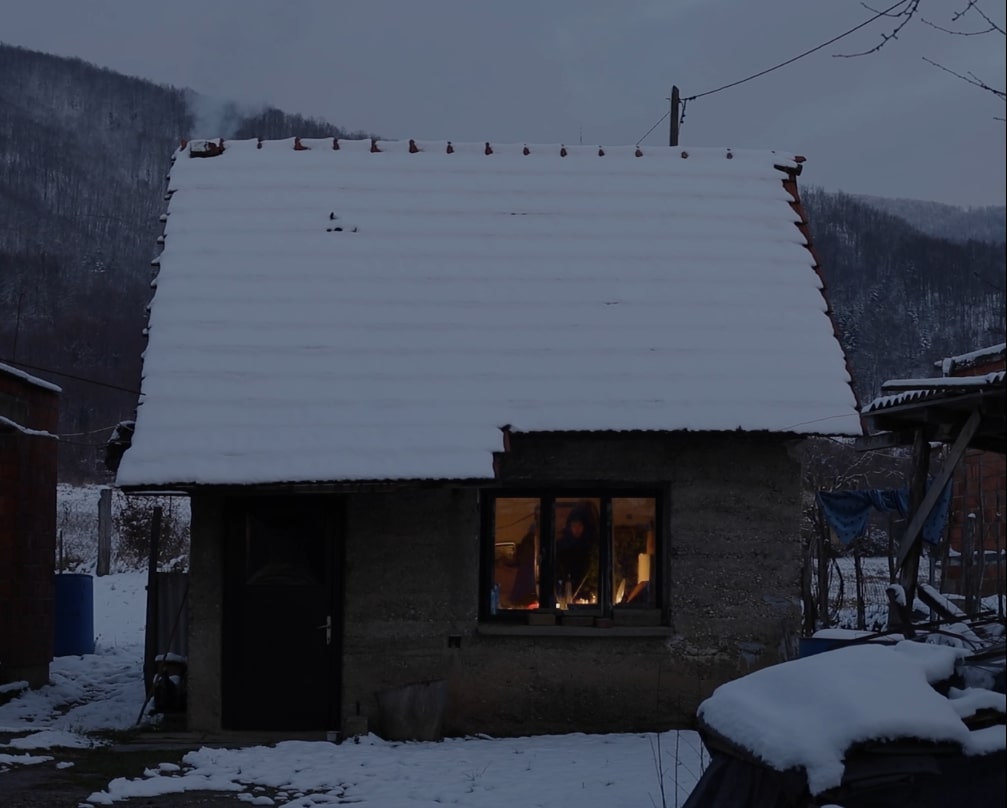Babajanja
Babajanja
VERDICT: This personal essay film inflected with horror movie motifs delves into childhood notions of bogeymen and the sobering truth behind them.
When Ante Zlatko Stolica’s new short Babajanja begins, it feels like the tale of a bogeyman – a confession about a fearsome, shadowy figure deployed by parents to make their children behave. Accompanied by purposely shot footage and archival material primarily taken from horror films, Stolica’s narration projects a ghostly presence that continues to haunt him well beyond his youth. It is just after he suggests that she stayed with him for far “longer than Baba Yaga, Freddy Kreuger and Children of the Corn,” that he reveals the reason for this is that his own personal phantom was, in fact, a real person.
It’s in the convergence of these two parts of the film that Babajanja finds its power and its poignancy. In that first half, the film flickers through familiar and unsettling flashes of horror film footage, as the voiceover paints a picture of the dark nooks and crannies of the mind, where the most frightening memories reside and are primed to reach out in our most vulnerable moments. If he is up before dawn, claims Stolica, Janja is still there. After the disclosure about her origins, however, the film changes tack somewhat, explaining that Janja was a young deaf woman in a relative’s village, who unintentionally scared little children and was rebuked for it by elders. As the film explores her story, she becomes less Freddy Kreuger and more Boo Radley, an outsider, cast in the role of ghostly terror by fertile imaginations.
The change in the film’s approach comes in a moment reminiscent of Xavier Dolan’s Mommy in which the screen opens out from boxy to widescreen. It represents a moment of maturation on Stolica’s part, in which he’s accused by his father – who is sick of being asked about Janja – of still being a scared boy. At this point, Babajanja is almost transformed into a more straightforwardly non-fiction work searching for the real Janja. Fears that Stolica professes now hinge more on what actually locating and speaking to this person decades later will mean for both of them, than her ominous presence in his mind’s eye. Her story is, it transpires, a sad one and the film captures images of the village she used to live in, and uses a stand-in extra to portray her going about her life. In its final moments, Stolica manages to beautifully convey the sadness that comes with a proper perspective of childish things, and the reality of how people who are different can be so easily forced into the role of monsters.
Director, screenplay: Ante Zlatko Stolica
Producers: Tibor Keser, Vanja Jambrovic
Cinematography: Katarina Zlatec
Editing: Iva Ivan
Sound: Hrvoje Nikšic
Production company: Restart (Croatia)
Venue: Sarajevo (Competition – Documentary Films)
In Croatian
13 minutes


